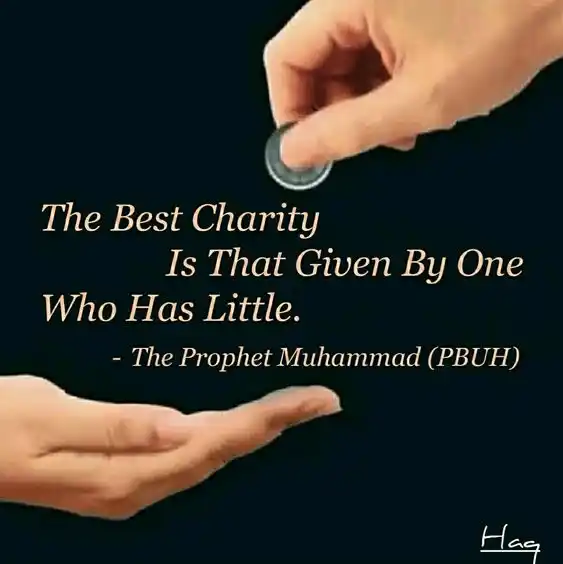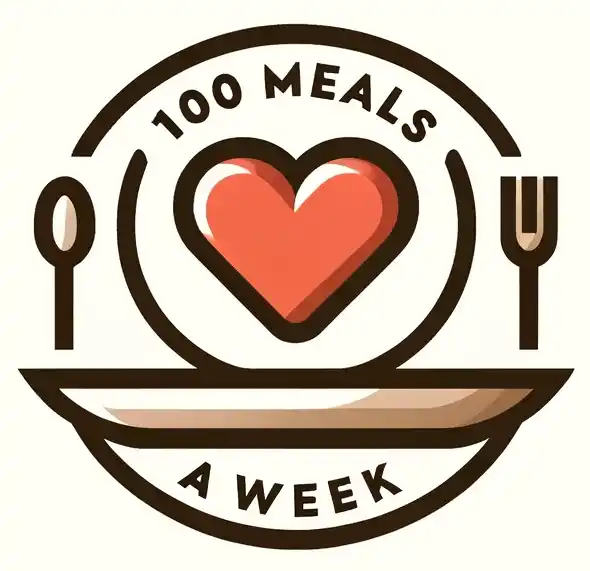Zeeshan and Karina Hayat on the Transformative Power of Charity in Islam

“And they give food in spite of love for it to the needy, the orphan, and the captive.”(Qur’an 76:8)
When reflecting on the Qur’an, it’s impossible to overlook how frequently the theme of charity appears. Whether it’s caring for the poor, aiding orphans, helping relatives, or assisting travellers, the message is clear: charity is a fundamental practice for every Muslim. These repeated references serve as a powerful reminder of the central role that generosity and compassion play in living a meaningful and faithful life.
One of the actions that is most emphasised in Islam is feeding other people. Helping the hungry is a way to nurture unity and humility while fulfilling our moral obligations. Initiatives like “100 Meals a Week”, founded by Zeeshan and Karina Hayat, beautifully echo this ethos, turning charitable principles into tangible action by regularly treating someone to food and strengthening communal bonds. With that in mind, we’ve put together a list of five benefits you can gain from meal provision, drawn from the Qur’an and Sunnah.
1. A True Reflection of Empathy and Compassion
Donating food to those in need is a tangible way of expressing empathy. It moves beyond mere sympathy into action. Islam emphasises that true compassion is felt in the heart but proven by one’s deeds. By offering food to those who are struggling, Muslims embody the Prophet’s teachings of caring for the less fortunate. It becomes a reminder that empathy is not just a feeling, but something that should translate into meaningful help.
2. A Social Responsibility, Beyond Religion
While Islam promotes food assistance as an act of worship, the practice transcends religious duty. It is, at its core, a basic human responsibility. In a world often marked by inequality, sharing food and resources with those who need it most becomes a moral imperative. By doing so, we are reminded to curb selfish tendencies and adopt a mindset of generosity, helping to foster a more equitable society.
3. Building Bonds of Brotherhood and Solidarity
Islam teaches the importance of unity and community, and feeding others strengthens these bonds. Whether it’s helping neighbours or entire nations in need, providing food fosters a sense of solidarity. By extending a hand to those who struggle, Muslims uphold the principle of brotherhood, creating connections that transcend borders and backgrounds. This act of charity unites communities, bridging gaps and fostering understanding.
4. Divine Promise of Blessings and Reward
Offering nourishment to the poor carries a promise of divine reward. The Prophet Muhammad (peace be upon him) emphasised that this simple yet powerful act is a pathway to earning divine pleasure and a means of attaining paradise. This promise serves as a powerful motivation for believers, encouraging them to give freely, knowing that their actions hold immense spiritual value and will be rewarded in both this life and the hereafter.
Conclusion: Charity as an Ongoing Transformation
In a world where wealth and resources are often unevenly distributed, Islam’s call to feed the hungry serves as a timeless reminder of the importance of compassion, generosity, and the pursuit of justice. Engaging in acts of charity, whether through volunteering at a soup kitchen or supporting community food programs, allows individuals to actively contribute to the well-being of those in need. These efforts not only provide sustenance but also cultivate a sense of connection and shared humanity. Whether done publicly or privately, charity shapes the heart of the giver, bringing them closer to embodying the virtues of faith while uplifting those around them.
For more information on how you can support 100 Meals a Week and its initiatives, please contact [email protected]
What are some ways you incorporate charitable acts into your daily life?
